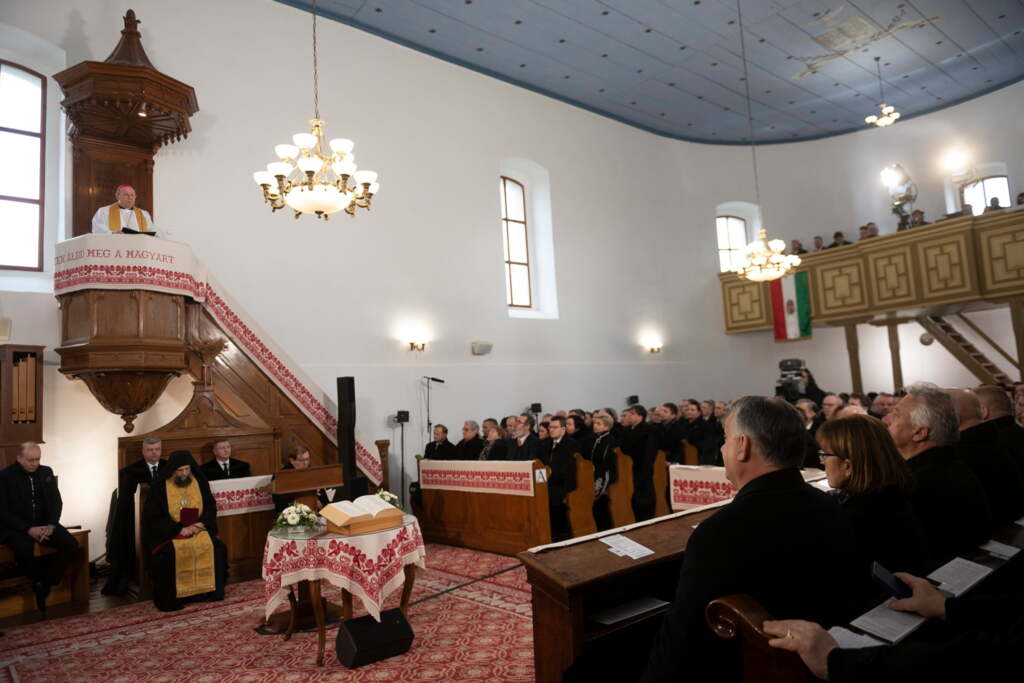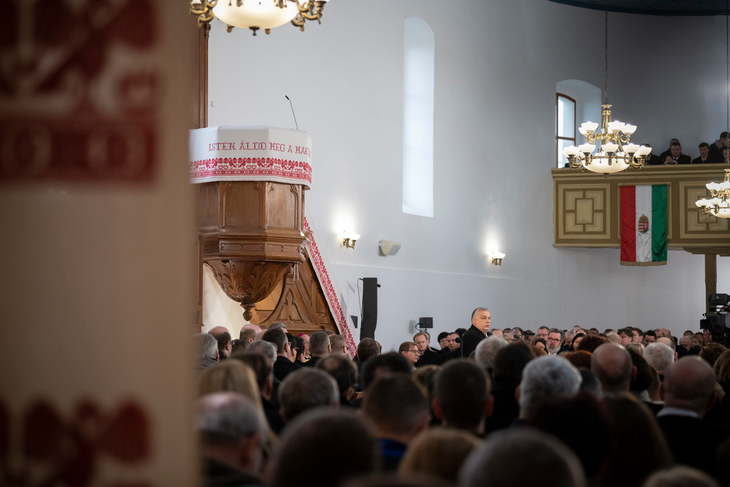It is worthy and just that the day of Hungarian culture marks the day the national anthem was born, Hungary’s prime minister said at the ecumenical service held in Szatmarcseke on Sunday. This day marks the 200th anniversary of Hungarian poet Ferenc Kolcsey completing his Hymn, which was to become Hungary’s national anthem.
There is no other piece of work in Hungarian culture, even when viewing a span of one thousand years, that can elevate hearts like the Hymn, Viktor Orban said. Should we decide to embark on the impossible task of condensing into a single work everything that is Hungarian and everything that makes Hungarians Hungarian, then we would arrive at the Hymn, the premier added.
The Hymn reminds us that although the number and extent of our sins may be high, the Good Lord did not wipe us off the face of the earth, thus we have earned the right to have a future, Viktor Orban stated.
The Hymn reminds us that we, Hungarians, like all Christian peoples who understand what sin and forgiveness are, have reasons to practice repentance. “We, Hungarians, are not innocent either. We have numerous faults and deficiencies. The only question is what we do with this recognition and admission,” he added, and went on to ask:
“Should we take the knee in the middle of a football pitch? Or should we topple the statutes of our great ancestors? Should we deny and expunge our thousand-year-old culture? Or should we succumb to self-appointed, rootless, liberal censors and let them rewrite the history of Hungarians?”
He emphasized that the poet Kolcsey recommends something different by penning the most important sentence in Hungarian historical literature: “This nation has suffered for all sins of the past and of the future.”
Viewed through a Christian lens, this does not grant any “bonus, free pass or license” to commit further sins.
“To the Christian soul, this sentence means that although the number and extent of our sins may be high, the Good Lord did not wipe us off the face of the earth. Even though He punished us, He has allowed us to continue our history. The sole explanation: Our virtues and merits are also numerous and have earned us the right to have a future,” he said.
If there is a virtue that can earn the reward of survival, then it is to persistently remain true to ourselves, Viktor Orban said.
“This is why today we can still resist the calls of the sirens” which allure us to “stand on the right side of history”, Hungary’s prime minister emphasized in his ceremonial speech at the ecumenical service held on the occasion of the Day of Hungarian Culture.
“This is why we cannot falter and be drawn into the whirlpool of an increasingly bloody war, this is why we want a ceasefire, negotiations and peace,” he emphasized, adding his opinion that Hungarians have learnt that the good side and the bad side of history are always determined by the great powers that prevail in the end, and they are not the least bit interested in what is good or bad for Hungarians.
This is why “we must remain on the Hungarian side of history even in the most complicated and difficult situations,” Viktor Orban said.

MTI/PM’s Press Office/Vivien Cher Benko
Just as two hundred years ago, on the birthday of the Hymn, Hungary today still wants to remain a Hungarian country, Viktor Orban said, emphasizing that “we have the right to say who can come here and who can stay; who can live with us and who cannot; and we also want to determine how our life can connect with our neighbours”.
“We are not any better or worse than others, but different,” and this difference comes from Hungarian culture, he said.
In his speech, the Hungarian prime minister also sent his greetings to the “Pannonian city of Veszprem”, one of the European Capitals of Culture this year, affirming the statement: “we are Hungarians, therefore Europeans” stated by Jozsef Antall, the first democratically elected prime minister of Hungary.
V4NA


